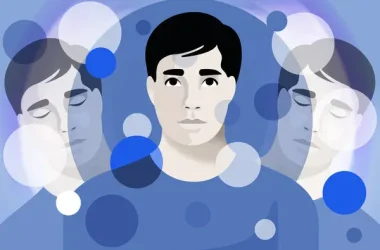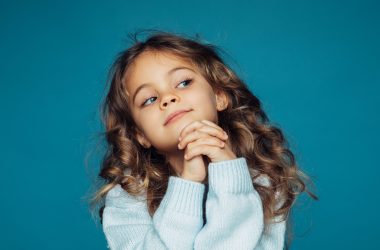Sri Lanka signed the Convention on Rights of Persons with Disabilities in 2016. The Sri Lankan OPDs (Organizations of Persons with Disabilities) have since risen to the occasion with strong advocacy for implementation of laws and policies.[1] However, the right to non-discrimination on the grounds of disability does not have constitutional protection in Sri Lanka. Among the many recommendations, the Sri Lankan disability coalition has asked for the establishment of a Disability Commission to act as a co-ordination mechanism at the highest level of governance. Unfortunately, advocacy campaigns by Disability Organizations Joint Front (DOJF), the largest coalition of DPOs in Sri Lanka, have not included persons with psychosocial disabilities within their membership or advocacy, which continue to be confined to the public health framework. Worldwide, the shift from “mental illness” to “psychosocial disability” has been challenging for all concerned.[2] Yet, the Convention on the Rights of Persons with Disabilities most certainly steers the repositioning of these narratives.
Remembering Sri Lanka’s History
Like most South Asian countries, Sri Lanka’s history has been rife with colonialism, ethnic conflict, civil war, enduring political instability and natural disasters. Colonized for more than a century by the British, Sri Lanka attained the status of an independent Republic in 1972. It was then engulfed in a civil war lasting 27 years that involved the death of over 100,000 people, as well as displacement of large populations and inter-generational trauma. The war is remembered ten years later through testimonies of war crimes, mass graveyards[3] and silent protests of women who are still looking for those who disappeared towards the end of the conflict. It is estimated that over 65,000 people went missing in 2009[4]. The Office of Missing Persons, established nationally under pressure from the United Nations, did little to assuage people. Citizens continue to live in conditions permeated by a post-colonial, post war scenario. In addition, the devastation caused by a tsunami in 2004, which took the lives of over 300,000 people, caused mass destruction of land and people.
Psychosocial status and recovery are strongly linked to the (lack of) restoration of social and economic justice of Sri Lankans across generations.
Inheriting Colonialism
Commonwealth countries mostly inherited systems related to mental health from their colonizers; with little to no amendments made to archaic legal laws designed to incapacitate persons with psychosocial disabilities as persona non grata. Practices of forced institutionalisation, involuntary detention and treatment, total social exclusion, and inhumane, degrading and cruel treatments meted to persons with psychosocial disabilities, as well as shackling and seclusion, continue to be widely practiced. People with psychosocial disabilities continue to be defined and explained by western, quasi-medical concepts of insanity that have little tolerance for societal interpretations, nor significant understandings of disability experiences. Experiences that have personal or cultural significance are not seen as valid, acceptable ways of being, or as expressions of human diversity. Furthermore, experiences of violence faced by those embodying intersectional identities in South Asia through caste, gender, sexuality, disability and religion are not acknowledged in western diagnostic manuals. There is therefore a strong need to locally assess the role that social barriers and experiences of social injustice and exclusion have on an individual’s psychosocial health and wellbeing; and to ultimately centralize “mental health” within the disability discourse.[5]
Mobilising Lived Experience
The need for a disability-inclusive, trauma-informed approach that shifts the preliminary question from ‘what’s wrong with you?’ to ‘what’s happened to you?’, is imperative in the South Asian context.[6] The current model of care that is provided threatens to re-victimise survivors of trauma by using a ‘disease model’ which attempts to fix the person, instead of fixing the situation. In Sri Lanka, given the intensity of loss faced by the local population, pain is proportionate to the events that caused it. Medicalizing grief and trauma, while devastating and re-traumatizing people further does not help in reconstructing families and communities; nor does it assist in accessing the resilient wisdom of survivors with lived experiences.
With lived experience and identity as a person with psychosocial disability, Chintha Munasinghe advocates for the rights of persons with psychosocial disabilities at the national level in Sri Lanka, and regionally throughout Asia. As Founder of Nidhas Chinthana Sansadaya (NCS), she developed a “Forum Theatre” based on the life experiences of self-advocates of NCS, working with the community to combat stigma, reduce discrimination and promote inclusion. Her efforts have created a demand for NCS assistance in building the capacity of self-advocacy groups.
Munasinghe’s engagement with UN-CRPD has led to awareness raising measures which use the arts as a medium for dialogue, while acknowledging the role of cultural practices in healing. A key example is the “Theatre of the Oppressed,” which mobilizes youth to become advocates for the rights of persons with psychosocial disabilities. She also used creative mediums to shed light on restoration of dignity of life and personhood to child soldiers of the war, dignifying lived conditions as driving factors in experiences of psychosocial disabilities. Through NCS, many members of the community have facilitated grieving processes through creative support systems, where people are provided with safe spaces to explore their pain and grieve patterns of loss and death. At a policy level, Munasinghe is shifting the paradigm to integration of psychosocial disabilities within larger disability conversations, addressing legislative barriers and making rights real.
With the numbers of persons with lived experiences of psychosocial issues in Sri Lanka rising, it is becoming increasingly important to question the biomedical model and look for alternatives such as those practiced by Munasinghe and Nidhas Chinthana Sansadaya (Consumer Action Forum), as these can offer more solutions to reconstructing communities in Sri Lanka, as well as in South Asia as a whole.
[1] Disability Organizations Joint Front (2017). “The State of Economic, Social and Cultural Rights of Persons with Disabilities in Sri Lanka”. April, 2017. Colombo.
[2] Bhargavi Davar (2018). “From user survivor to person with psychosocial disability- Why we are TCI Asia”. In Mad in Asia , July 8th, 2018. https://madinasia.org/2018/07/from-user-survivor-to-person-with-psychosocial-disability-why-we-are-tci-asia/
[3] Associated Press (2013). “SriLanka starts count of civil war dead”. Al Jazeera 28th November, 2013. http://america.aljazeera.com/articles/2013/11/28/sri-lanka-startscountingthecivilwardead.html
[4] Human Rights Watch (2014). “Sri Lanka: Little Progress on Rights. In International Spotlight, Accountability Stymied; Activists Under Assault.” January 21st 2014.
[5] Zenobia Morrill (2019). “Disability and decolonial studies disrupt the medical model”. August 16, 2019, In Mad in America. https://www.madinamerica.com/2019/08/disability-decolonial-studies-disrupt-medical-model/ accessed on 22nd August 2019.
[6] Zenobia Morrill (2018). “Correcting Misconceptions of Trauma-informed Care with Survivor Perspectives”. October 29,2018. In Mad in America.


